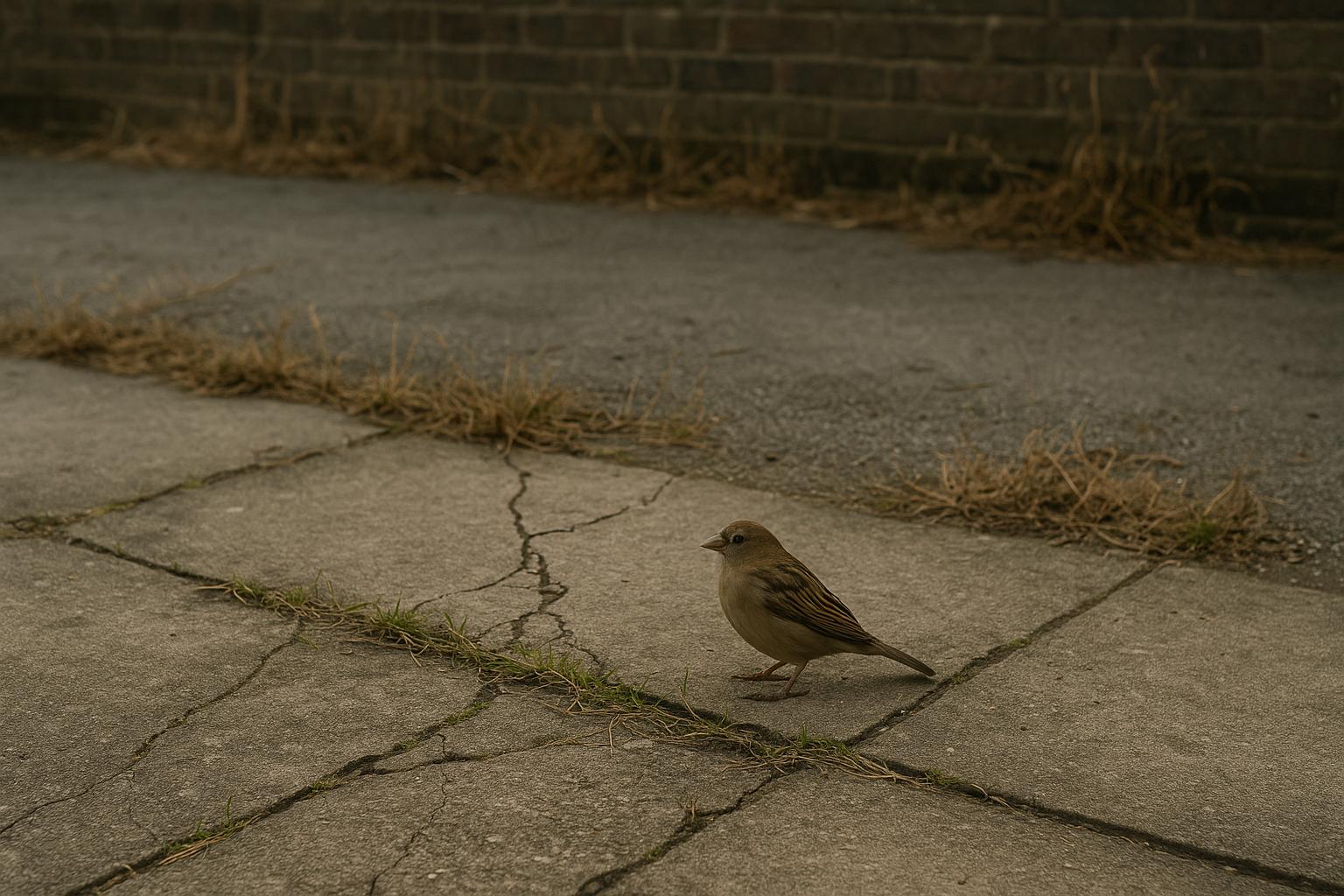More than two-fifths of Britain’s garden space is paved over, significantly diminishing the ability of these green areas to aid in flood prevention, support wildlife, store carbon, and contribute to climate resilience, according to a new report by the Royal Horticultural Society (RHS). The study, for the first time, used advanced AI-assisted mapping and ultra-high resolution satellite imagery to provide a detailed analysis of gardens across Britain. It found that over half of front gardens and a third of back gardens are covered with impermeable surfaces, including paving and artificial lawns, which currently account for some 7.5 million square metres of domestic garden space.
The RHS’s comprehensive mapping covered 25.8 million gardens, equivalent to 4.6% of Great Britain’s land area, highlighting stark regional disparities in garden provision. For example, gardens constitute more than 40% of London’s land area but less than 20% in places like Leeds. These green spaces are critical not only for their biodiversity but also for their social and economic contributions, with gardening estimated to generate £38 billion for the UK economy while improving health and well-being, fostering jobs, and bringing communities together.
However, the extensive paving—especially in front gardens where 55% of the space is paved compared to 36% in back gardens—is reducing these benefits. The RHS warns this trend affects gardens’ natural cooling ability, their role in absorbing pollution, supporting wildlife habitats, and managing rainwater runoff, which is essential for mitigating flood risks linked to climate change. This concern echoes findings from earlier reports, including a 2015 RHS study cited in parliamentary debates and by London Assembly members, which underscored that the hardening of gardens exacerbates local flood risks and heat stress in urban areas.
In response, the RHS calls for guaranteed "space to grow" to be embedded in all new and existing housing developments. They advocate for urban planning policies that mandate high-quality, permeable, and ecologically rich gardens capable of storing water and enhancing biodiversity. Householders are encouraged to adopt planting strategies and permeable paving, while councils and developers should prioritise diverse tree planting and garden designs that are resilient to climate extremes.
Environmental benefits are further illustrated by the discovery of 19 million trees in private gardens and over 50 million across all cultivated green spaces in Britain. Gardens serve as important refuges for wildlife, hosting more than 40% of UK bird and mammal species and over half of UK butterflies, amphibians, and reptiles. Despite this, awareness among gardeners about ecological practices can be limited; surveys accompanying the report revealed that while the majority avoid peat composts, over half of plant buyers were unaware if their plants were peat-grown. The study also exposed a cultural gap where many who garden regularly do so primarily for aesthetic reasons, with fewer recognising the mental health benefits or the potential to support wildlife.
The report highlights a paradox in Britain’s relationship with gardening. Although 60% of UK residents, including many children, garden at least monthly, only a quarter consider themselves "gardeners." Children expressed imaginative visions for their ideal gardens that combine play areas, vibrant flowers, and habitats for wildlife, signalling a generational interest in nurturing green spaces. This enthusiasm contrasts with the significant number of adults who do not garden, often citing lack of interest or space.
Clare Matterson, director general of the RHS, emphasised the crucial role gardens play as a "touchstone to nature," fostering active engagement with the environment while underscoring the urgent need to address inequalities in access to green spaces. She urged the government to prioritise garden provision within housing infrastructure and community projects, calling for garden spaces to be considered infrastructural essentials.
Supporting this message, organisations such as Flood Re are championing flood-resilient gardening techniques at events like RHS Chelsea 2024, promoting affordable adaptations that enable gardens to manage water effectively and bolster urban resilience. These initiatives reinforce the growing recognition that gardens are valuable ecological assets requiring strategic protection and enhancement to meet the challenges of climate change and urbanisation.
📌 Reference Map:
- Paragraph 1 – [1], [2], [4]
- Paragraph 2 – [1], [5]
- Paragraph 3 – [1], [3], [6]
- Paragraph 4 – [1], [4], [5]
- Paragraph 5 – [1]
- Paragraph 6 – [1]
- Paragraph 7 – [1], [7]
Source: Noah Wire Services
